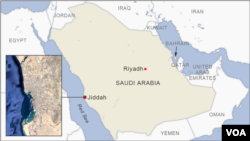Nine months after Saudi Arabia vowed to stop executing convicted minors, the kingdom is yet to revoke five death sentences, a Reuters investigation has found.
In April, Saudi Arabia’s Human Rights Commission (HRC) referred to a March decree by King Salman bin Abdulaziz, which indicated that those convicted for crimes committed as minors would serve prison terms of up to 10 years, instead of facing the capital penalty.
The decree did not stipulate a timeline for it to come into effect. Despite never being publicized on state media or published on the official gazette, HRC confirmed in October that the decree has been in force since its signing.
Local human rights organizations have again raised concerns about the decree, as a December recapitulation by the state-owned news agency SPA of the most important decisions of 2020 did not mention the death penalty revocation. Groups such as Human Rights Watch and the European-Saudi Organization for Human Rights fear that loopholes could still allow judges to impose the capital penalty.
The Saudi government denied it could happen.
“The Royal Order issued in March 2020 was put into effect immediately upon its issuance and was circulated to the relevant authorities for instant implementation,” the kingdom’s Center for International Communications told Reuters.
In 2019, around 185 people were executed in Saudi Arabia. In addition to the five juvenile offenders whose death penalties are yet to be revoked, eight Saudi minors face charges that could result in execution. The Saudi government said the royal decree will be applied retroactively to all these cases.
Saudi Arabia Vowed to Stop Executing Minors, but Official Executions Could Still Happen
- By VOA News





